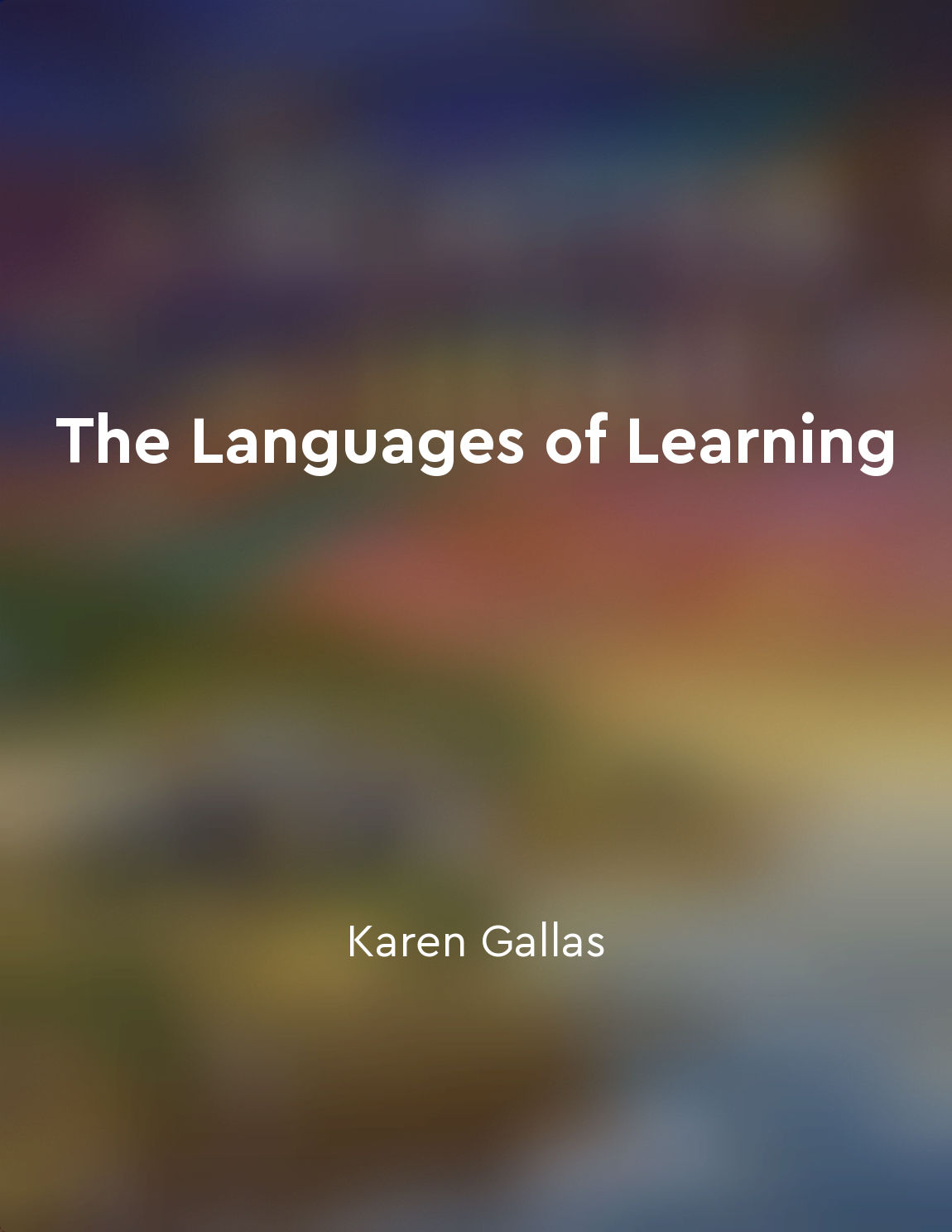Teachers must appreciate the complexity of children's languages of learning from "summary" of The Languages of Learning by Karen Gallas
In our work with children, it is essential that we recognize and value the diverse ways in which they express their thoughts, feelings, and understandings. Each child brings with them a unique set of experiences, perspectives, and ways of making sense of the world. As teachers, it is our responsibility to be attentive to these individual languages of learning and to create opportunities for children to share and explore them. Children's languages of learning are multifaceted and complex, encompassing not only verbal communication but also gestures, body language, drawings, play, and interactions with materials and peers. By appreciating and understanding these diverse languages, we can gain deeper insights into children's thoughts, fe...Similar Posts
Words are not fixed entities but are subject to change
The meaning of a word is not something that is set in stone, but rather something that can evolve over time. Words are not stat...

Children's languages of learning contribute to their overall wellbeing
As children engage in various forms of learning, they are not only acquiring knowledge and skills, but also shaping their overa...
Words are not fixed entities but are subject to change
The meaning of a word is not something that is set in stone, but rather something that can evolve over time. Words are not stat...

Children's languages of learning are essential for their academic success
Children's languages of learning, encompassing their unique ways of understanding and engaging with the world, play a crucial r...
Parents and teachers should be patient and supportive
Parents and teachers play a crucial role in guiding children through their learning journey. It is important for them to be pat...
Being attentive to a child's needs fosters trust
Being attentive to a child's needs is crucial in building a strong foundation of trust between parent and child. When a child f...
